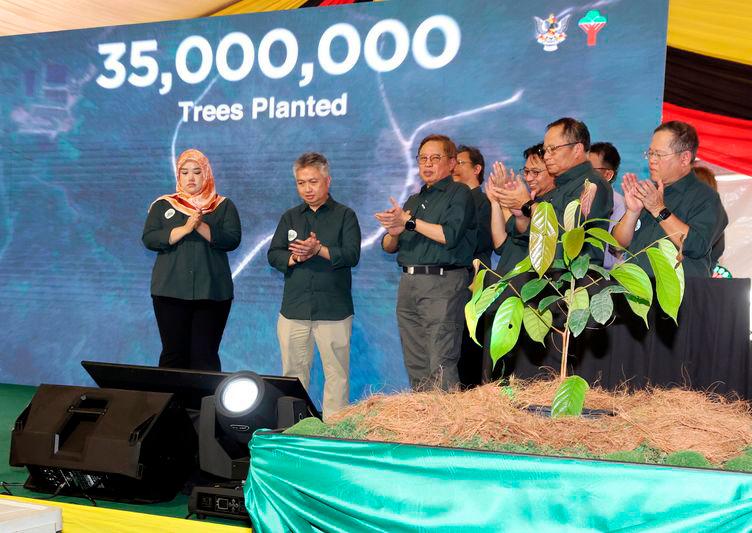KUCHING: Sarawak Premier Tan Sri Abang Johari Tun Openg today gave people a peek into the proposed Sarawak Energy Transition Policy (SET-P), another of its roadmap towards green energy to ensure a sustainable, clean and prosperous energy future for the state.
He said the comprehensive policy will also involve collaborations with other countries on matters such as sharing technologies and job creation.
“By embracing the principles of innovation, inclusivity and global best practices, the SET-P envisions a multi-dimensional approach that integrates policy, regulation, technology, infrastructure and community engagement.
“Some refer to this concept as ‘hypernomics’, highlighting the transformative impact of leveraging advanced infrastructure and fostering robust community involvement,” he said in his keynote address at the launching of the Asia Pacific Green Hydrogen Conference & Exhibition 2024 (APGH 2024) here.
Abang Johari said ‘hypernomics’ envisions a synergistic framework where these elements work in harmony, driving down costs and significantly enhancing the efficiency and effectiveness of Sarawak’s energy transition efforts.
He also announced the establishment of a Centre of Excellence for Clean Energy in Sarawak as a hub of innovation, research and development as well as bringing together experts to pioneer cutting-edge technologies harnessing renewable resources.
“This centre will spearhead its setup and management, symbolising our commitment to innovation and progress in the clean energy sector. It will drive advancements in clean energy domains such as hydrogen, hydroelectric, solar energy, biomass and other emerging forms,” he said.
Apart from that, he said as Sarawak is developing the Sarawak Hydrogen Roadmap, the state through its Ministry of Energy and Environmental Sustainability has secured a prestigious study grant on hydrogen energy from South Korea’s Ministry of Economy and Finance.
“This grant will enable us to embark on a groundbreaking study to develop the Sarawak Hydrogen Roadmap, a comprehensive blueprint for harnessing the immense potential of hydrogen energy. We aim to advance Sarawak’s leadership in the hydrogen economy by partnering with South Korea to explore innovative strategies for hydrogen production and utilisation.
“The Sarawak Hydrogen Roadmap will guide our efforts, covering technological advancements, infrastructure development, and regulatory frameworks. Through collaboration, we seek economic growth, job creation and environmental stewardship, contributing to global sustainability goals,” he said.
Meanwhile, Abang Johari said at a press conference that the study grant initiative is one of the South Korean government’s decarbonisation efforts.
“I do not have the figure but it is quite substantial ... since we have the feedstock we can work together with the Koreans. That is why we want to produce that hydrogen here and that hydrogen will be brought to Korea.
“Actually they (South Korea) are now building a terminal in the power plant. The moment the terminal is producing about six gigawatts using coal, they are changing the coal to biomass and also through hydrogen,” he said.
The inaugural APGH 2024 from June 10 to 12 gathers industry leaders, policymakers, experts and stakeholders from around the globe to explore and promote the potential of green hydrogen.
The conference features an extensive programme, including keynote addresses, panel discussions, technical sessions and a comprehensive exhibition showcasing the latest advancements in green hydrogen technology.
With over 100 exhibitors and 500 delegates, the event is set to be a catalyst for new projects, investments and partnerships.









